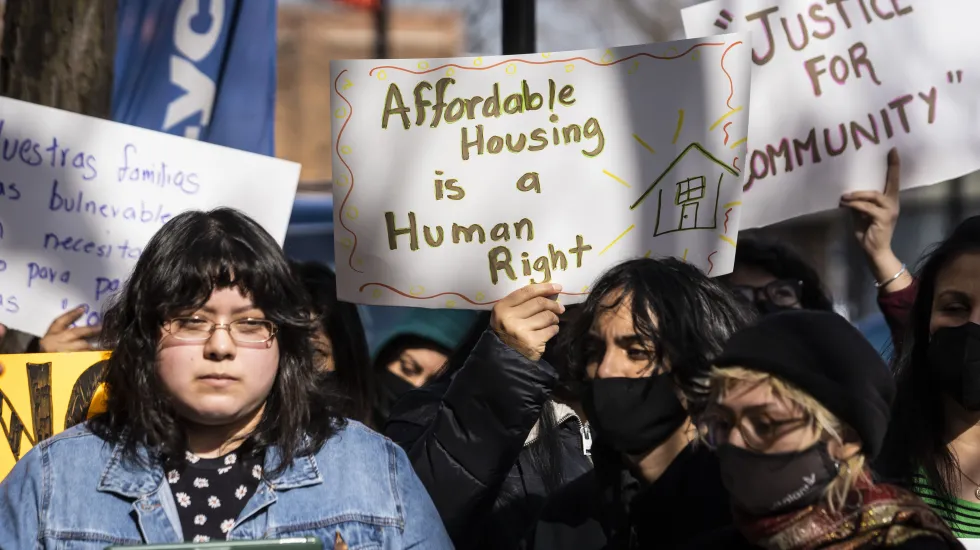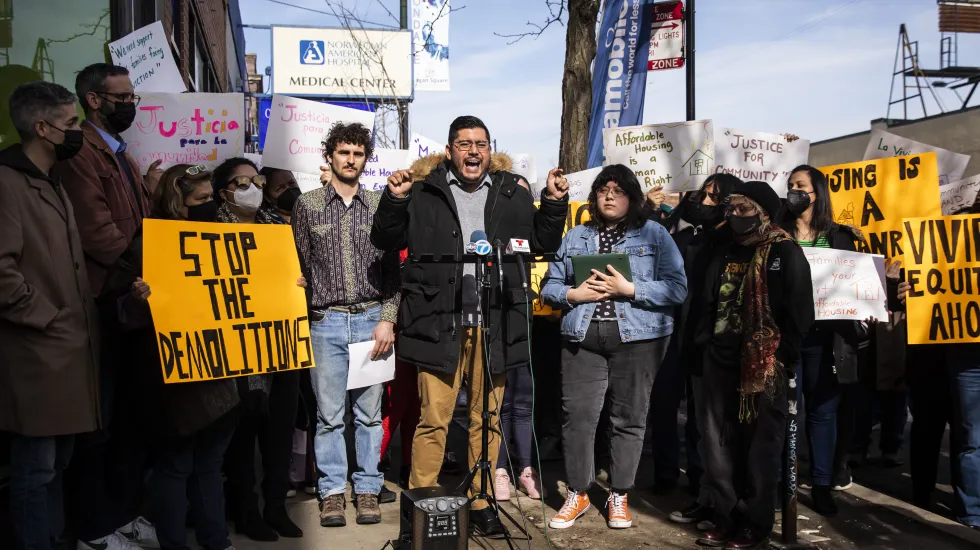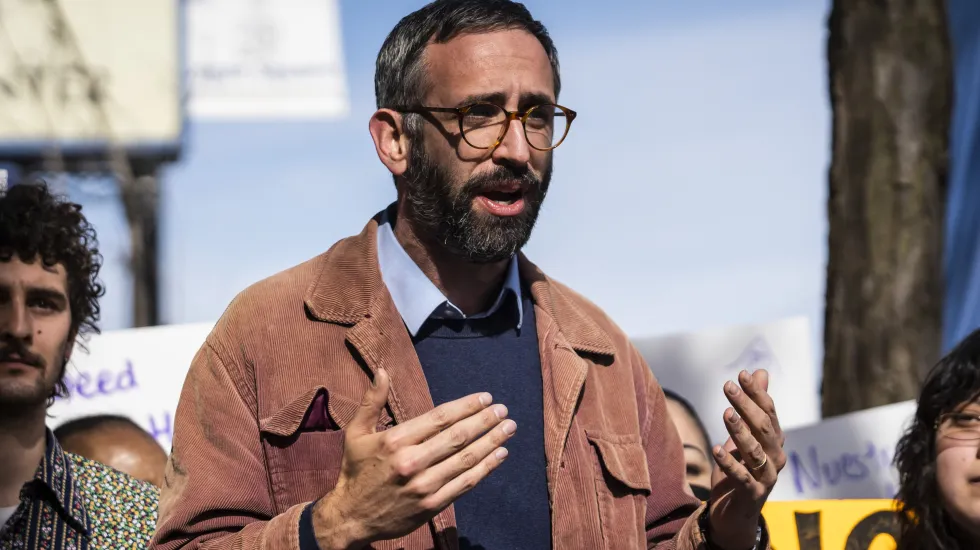
Housing advocates in Logan Square are calling on the city to make permanent a program that penalizes developers for demolishing residential homes along the 606 trail.
“As much progress as we made as a community, it’s still important that we push our elected officials to do what’s right for you and for them to keep the promises they made to you,” said Dave Soto, an equitable development fellow with the Logan Square Neighborhood Association. “This means extending the 606 demolition ordinance which has protected working-class families by hitting developers where it hurts — their wallet.”
About three dozen people stood outside the Logan Square Neighborhood Association on Monday with signs decrying how gentrification has affected the community and calling on the City Council to extend the ordinance indefinitely.
The pilot ordinance was passed last year and imposes a $15,000 surcharge for tearing down a home or levies a $5,000 per-unit charge for multiunit residential buildings along the 606 trail and in Pilsen. The money generated from the “anti-displacement” ordinance would help support the Chicago Community Land Trust, which helps families buy homes at affordable prices.
The pilot ordinance expires on April 1.
Ald. Carlos Ramirez-Rosa (35th), who helped push the pilot through City Council, said the fee has gone a long way in helping preserve housing in Logan Square and Hermosa. That fee, he said, “recognizes that when those bricks — when that building goes into a landfill — it has a negative impact on affordability” and on the environment.

Ramirez-Rosa said preliminary data shows it has helped protect affordable two- and four-flat units in Logan Square.
“Now, we need to make sure that fee is extended,” Ramirez-Rosa said. “We want to see that fee extended this month, and we want to ensure that fee is protected and strengthened over the long term.”
Ald. Daniel La Spata (1st) said early figures show the pilot ordinance has helped cut demolitions in Logan Square along the 606 trail area by 90%. There also have been no deconversions of multiunit homes into single-family homes since a companion ordinance was passed last year.
“Zero deconversions, we are saving housing because what we build is so important but what we keep is just as important,” La Spata said.
Lissette Castañeda, executive director of the housing advocacy group LUCHA, said more than 20,000 families have been displaced from Logan Square, Avondale, Hermosa and Humboldt Park due to rapid development and housing costs. A couple of city ordinances won’t stop the trend but federal funding from the American Rescue Plan Act can help significantly, she said.
State Rep. Delia Ramirez, D-Chicago, said the General Assembly should earmark $855 million to address “homelessness, homeless prevention” and provide assistance to tenants struggling to pay rent.
Housing Committee Chairman Rep. Will Guzzardi, D-Chicago, said state legislatures are in the middle of deciding how to allocate the billions of dollars they received from the American Rescue Plan. He is also advocating for $855 million to go toward housing issues across the state.
“It’s a big proposal, and it’s a lot of money but I will say this, there are a lot of lobbyists in Springfield who represent powerful industries who have their hand out,” Guzzardi said.
Guzzardi said events like the one held on Monday help fight against those lobbyists.








